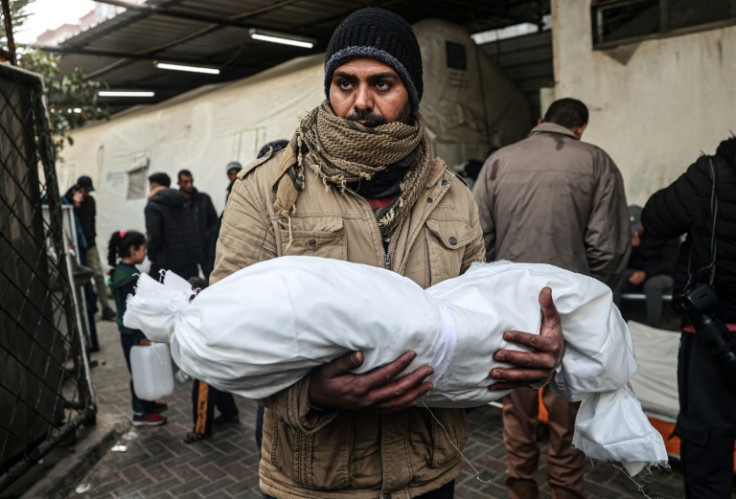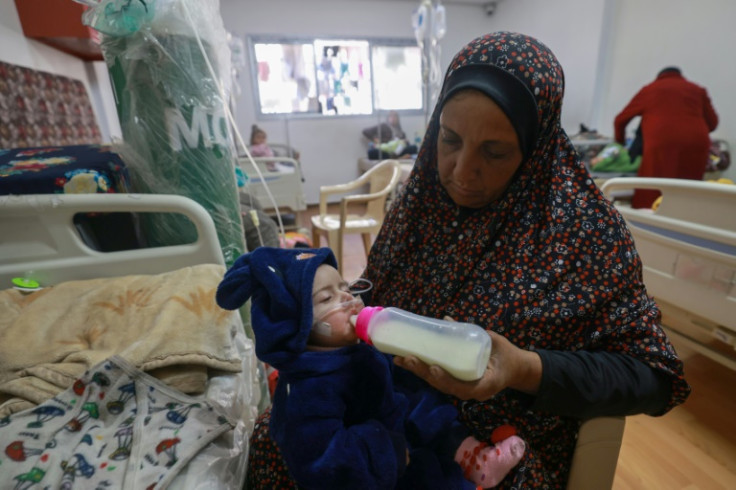Over 10 Palestinian Children Lose Limbs Daily Amid Famine Threat
10 children lose one or both of their legs each day

According to a Save the Children report, Palestinian children are seven times more likely to die from blast injuries than adults in Gaza.
On average, more than 10 children have lost one or both of their legs each day since Israel launched its bombardment of the besieged enclave on October 7. The children's charity also exposed how most of the amputation procedures have been conducted without anaesthesia.
In a statement that referenced United Nations (UN) statistics, Jason Lee, Save the Children's Director for the occupied Palestinian territory, said that the "suffering of children in this conflict is unimaginable and even more so because it is unnecessary and completely avoidable."
"The killing and maiming of children is condemned as a grave violation against children, and perpetrators must be held to account," he added.
Aid workers have seen "doctors and nurses completely overwhelmed" when children are brought in with already-amputated limbs and fatal blast wounds.
"The impact of seeing children in that much pain and not having the equipment, medicines to treat them or alleviate pain is too much for even experienced professionals," Lee said.
As the Israeli Defense Forces (IDF) has vowed to continue its ground operation, which allegedly sets out to "eliminate" Hamas members, the Kamal Adwan hospital in the north of Gaza also reported that at least 10 children have died of starvation.
"Their families did not have enough food or milk for them," he said. "They arrived in an advanced state of dehydration and malnutrition, so unfortunately we lost them," Hussam Abu Safieh, a paediatrician who works in the Kamal Adwan hospital, told the Financial Times.
The adolescent patients ranged in age from 25 days old to 8 years old, Safieh added.

Calling for a new strategy that addresses the looming famine in the north of Gaza, Jamie McGoldrick, the UN's humanitarian coordinator for the occupied Palestinian territories asked for a military access road to the northern region that would allow for a minimum of 300 aid trucks to enter every day.
After a two-day visit to the Palestinian territory, McGoldrick said: "Children are dying from hunger."
"Hunger has reached catastrophic levels."
Since the US announced its plans to facilitate a pier that would enable maritime deliveries to Gaza, the UN said that just six aid convoys were able to make deliveries to the north of Gaza in February.
Last month, the World Food Programme also announced that it was forced to pause "life-saving" food deliveries to the north.
The humanitarian organisation said that it was forced to pause its deliveries after its aid convoys had endured "complete chaos and violence due to the collapse of civil order."
The agency said that the controversial decision was not taken lightly, but noted that its employees had faced looting and crowds.
While food insecurity has affected all of the Strip, civilians in the northern region have seen almost no food for weeks. According to Gaza's Health Ministry, nearly 20 people have already died of hunger across the territory.
The UN has since accused the Israeli military of denying most of its aid trucks to the north and reported that that Palestinian police have refused to secure its convoys from looters - out of fear of being targeted by the Israeli military.
This news comes after Israel claimed it had evidence that tied several UNRWA members to the terror group Hamas.
© Copyright IBTimes 2025. All rights reserved.





















